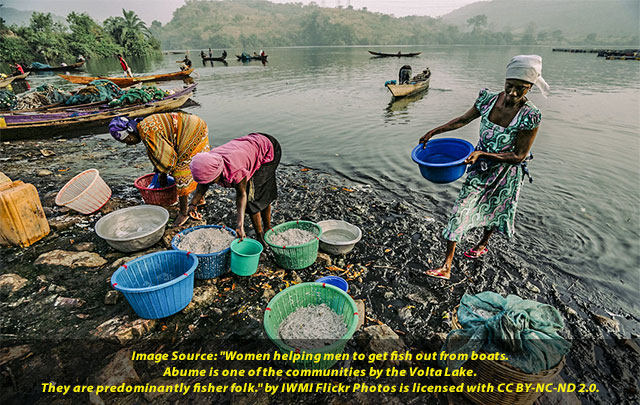 Janna Klostermann, Brock University
Janna Klostermann, Brock University
Having people constantly rely on you can make you feel stuck. Author Makenna Goodman’s novel The Shame speaks to the experiences of people who feel stuck in relation to others with care needs who depend on them.
In talking about wanting to escape the responsibility of caring for her children, the novel’s narrator wrestles with whether she’d ever be able to “escape the pain of both being a bad mother and being without them.”
The book registers the “stuckness (one feels) from adhering to a rigidly cultivated life” and the complete and utter heartbreak that can come with not being able to live up to the moral, feminine expectations you’ve set for yourself. “What if life could be otherwise?” is a question that seems to underpin the book. It’s also a question I have been exploring as a feminist sociologist of care.
While The Shame focuses on the life of one mother, I was reminded of the stories of other paid care workers and unpaid family or friend carers when reading it. With the COVID-19 pandemic, women, and some men, have been pressed to take on additional care, work or family responsibilities.
Women often feel stuck caring for others. We must consider how we can learn from them and from care scholars about how to get “unstuck.”
Care has limits
Paid care workers are working non-stop and doing additional unpaid work. Family and friend care providers are also working extra hard.
And for many across Canada, this was the case before the pandemic.
My research aims to rethink practices and meanings of “care,” with a focus on how exactly people say “no,” step back or otherwise renegotiate responsibilities for care. Care has limits is the title of my dissertation. I have learned from former care providers, including those who reached their limits and walked off the job, and have conducted team-based research in nursing homes, where I have learned from residents, workers and family members.
Through my research, paid and unpaid carers reported struggling to move on or seek care for themselves when they were at the end of their rope. “My body literally, you know, gave out on me,” one woman said, before noting that “even then … it was still so hard to leave.”
Moral expectations for women to care for others can be dangerous when lived out or pushed to the limit, especially when wider conditions of social neglect or limited options to share responsibility are at play. Some experience the weight of this more than others.

My point isn’t that people should stop caring or that care work is only burdensome, constraining or oppressive. I recognize how — with the right conditions — care relationships can be imaginative, life-enriching spaces of joy, creativity, purpose and connection.
What I am critical of is how women are coerced into caring for others at the expense of ourselves, against all odds and regardless of conditions. I’m critical of how compliments like “Aw, honey, no one can care the way you do” are thrown around without being accompanied by the needed supports, resources or conditions to be able to pull off such a project.
So how do we get unstuck?
Getting unstuck
We can learn from those who feel trapped or tethered about the kind of changes that are needed.
As I have come to appreciate, women do a lot of work to break down gendered, moral ideals of care that feel like chains. At the limits of care, we reorient to our sense of selves, rethinking what it means to be a “good” woman, wife, mother, daughter or worker.
“Well, then who am I? … Who am I, then?” one woman asked, noting that resigning from paid care work was an incredibly disruptive life experience that involved rethinking who she was and what she owed others.
Others questioned arrangements of care that set them up as “lone wolves” or as the “only ones” who could meet a person’s needs. The ways they had felt “special” or “unique” as primary carers had become problematic to them, and they shared stories about asking for help or trusting others to step in.
We can learn from how women go about sharing responsibility or loosening the grip of moral expectations to care against all odds.
We can also learn from scholars and advocates who have long been committed to investigating and transforming the social organization of care — reckoning with systemic inequities that diminish those who provide and those who need care, while also reflecting on the importance of care infrastructure that is central to the running of the economy.
Read more: Coronavirus crisis shows ableism shapes Canada’s long-term care for people with disabilities
The Care Economy Statement, developed by sociologist Pat Armstrong and colleagues, is a notable example that pushes for integrated, equitable responses that put the care economy at the centre of policy. It speaks to the necessity of public sector supports and to the dangers of the state’s reliance on the unpaid work of women.
Emphasizing that “conditions of work are the conditions of care,” the statement underscores the need for public sector supports, and highlights that “unpaid work simply cannot take up the slack.”
We need major investments that enact care as a public, collective responsibility, not a for-profit, private one. There are statements to sign, coalitions to join, social movements to support and promising policy and practice recommendations for governments to implement.
As care duties, conditions, needs and capacities change over time, it’s worth talking about consent and how to ensure women have options to say “no,” or to share responsibilities. It’s worth rethinking normative, feminine life paths that promise so much, and remaking conditions of work, life and care that haven’t been working for a while.
Some of the ways women are “stuck” or “set up” are about the devaluation and over-reliance on women’s unpaid work; they have been organized and designed that way, which means they can be otherwise. Let’s rework that.![]()
Janna Klostermann, Postdoctoral fellow in Sociology, Brock University
This article is republished from The Conversation under a Creative Commons license.

















